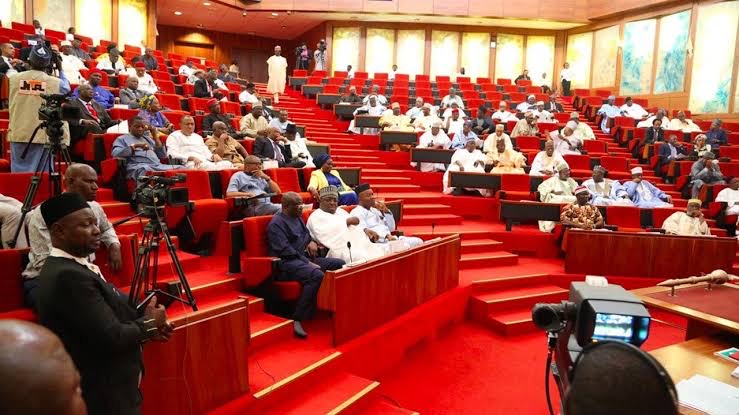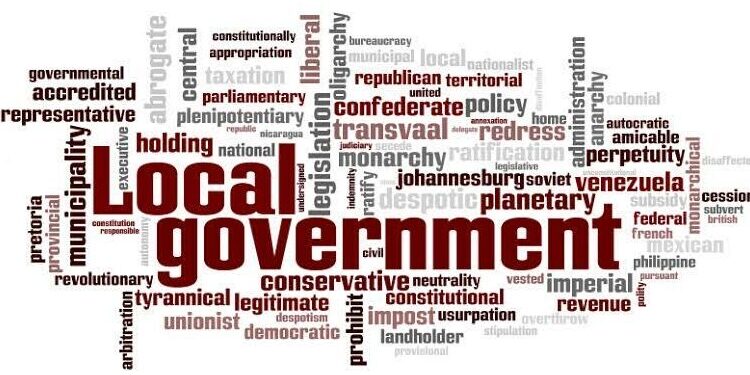Section 7 of the 1999 Constitution stipulates the following:
“7. (1) The system of local government by democratically elected local government councils is under this Constitution guaranteed; and accordingly, the Government of every State shall, subject to section 8 of this Constitution, ensure their existence under a Law which provides for the establishment, structure, composition, finance, and functions of such councils.”
Nevertheless, it is observed that a significant number of local councils are overseen by caretaker committees. Even in instances where elections are conducted, they are often manipulated by the state government to secure victory for the ruling party in all seats. Presently, local councils primarily serve as extensions of the state-level political party in power. The chairman and councilors are merely puppets of the state governor. From an economic standpoint, local governments have transformed into mere expense centers. Besides salary disbursements, the local administration fails to undertake any substantial developmental activities, as its functions and revenue sources have been taken over by the state government.

In the Foreword to the Guidelines for Local Government Reforms of 1976, the recurring challenges that have plagued the local government system since independence were highlighted, and the reforms were intended to address these issues:
“(i) Continuous erosion of their authority by State Governments.
(ii) Persistent encroachment on what should have been exclusive powers of local government.
(iii) Inadequate financial resources.
(iv) Insufficient personnel.(v) Excessive political maneuvering.
(vi) A disconnect between the populace and the government at the grassroots level.”
In the same official document by the Federal Military Government, local government in Nigeria was defined as:
“Government at the local level exercised through representative council established by law to exercise specific powers within defined areas.”
“These powers should give the council substantial control over local affairs as well as the staff and institutional and financial powers to initiate and direct the provision of services and to determine and implement projects so as to complement the activities of the State and Federal Governments in their areas.”
The Guidelines, however, described a local council as a body “created by and derived its powers from State Governments and they spring from the local communities of which they should be representative.”
With the 1976 Reforms, “The Federal Military Government has… decided to recognize Local Government as the third tier form of governmental activity in the nation… Local Government should do precisely what the word ‘government’ implies, i.e., governing at the grassroots.”
It is disheartening and a poignant reflection that nearly five decades after the groundbreaking Local Government Reforms, the very afflictions the reforms were meant to remedy are still prevalent – despite 25 years of uninterrupted democratic governance!

Considering the relevant provisions of the 1979 Constitution, which mirrored the pivotal 1976 Local Government Reforms as well as the subsequent 1999 Constitution, the (degree of financial) autonomy, particularly in terms of a local council’s capability to execute projects and function as a governmental tier, envisioned by the reforms, could scarcely be realized. For instance, Section 162 (5)(6)(7) and (8) state the following:
“(5) The amount allocated to Local Government Councils in the Federation Account shall also be allocated to the State for the benefit of their Local Government Councils on such terms and in such manner as may be prescribed by the National Assembly.
(6) Each State shall uphold a special account known as the “State Joint Local Government Account” into which all allocations to the Local Government Councils of the State from the Federation Account and from the State Government shall be deposited.
Section 162 of the Constitution further delineates the financial autonomy of local government councils, emphasizing the importance of direct allocations to these councils. However, in practice, these allocations are often subject to manipulation and diversion by state governments, leading to a lack of financial independence for local councils. This financial dependency hampers their ability to execute projects and provide essential services to their communities effectively.
Moreover, the issue of political interference remains a significant challenge in local governance. The undue influence of state governors and political parties undermines the democratic principles upon which local government autonomy is founded. The prevalence of caretaker committees and manipulated elections erodes the legitimacy of local councils, further perpetuating the status quo of centralized control.
To truly realize the vision of local government autonomy, there needs to be a concerted effort to uphold the constitutional provisions that guarantee the independence and effectiveness of local councils. Strengthening oversight mechanisms, enhancing transparency in financial management, and empowering local communities to actively participate in decision-making processes are essential steps towards revitalizing the role of local government as a true governance entity at the grassroots level. Only through genuine reform and commitment to democratic principles can the future of local government autonomy be secured for the benefit of all citizens.


































